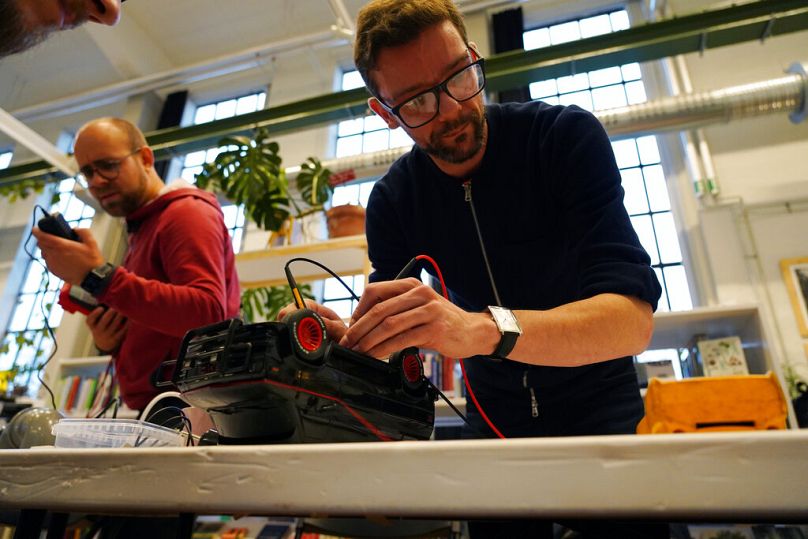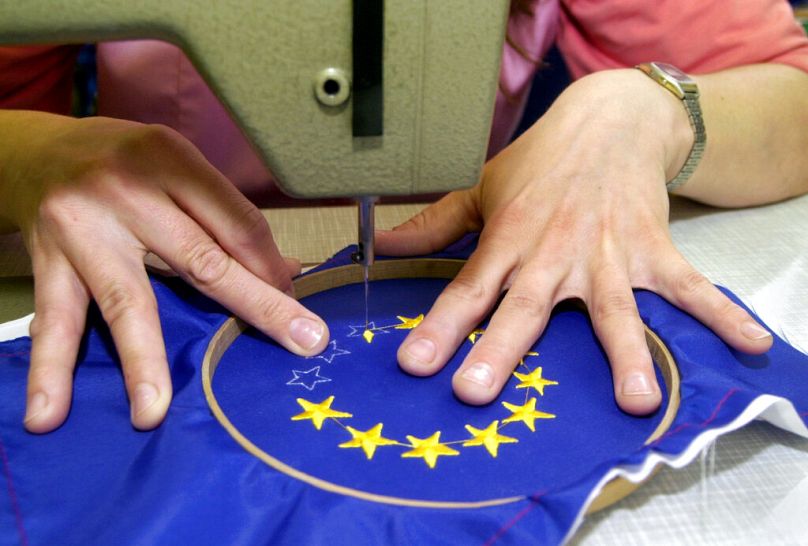Consumers in the EU can feel assured that in a few years, they will have access to a wealth of information that will change how they consider purchasing decisions and contribute to a more sustainable society, Lars Rensing writes.
The EU will soon be mandating the use of Digital Product Passports, or DPPs, across multiple industries.
In a nutshell, a DPP is a digital record that provides information on a product’s lifecycle.
This can include anything from the materials that were used to create it, the environmental impact of the product, ownership, how to responsibly dispose of the item, and important information on warranty or maintenance.
This information is typically accessed through a data carrier like a QR code or barcode, with information being accessed by a device such as a smartphone.
So for example, if you think of a speaker, a DPP can provide information on when it was manufactured, information on spare parts, and how to dispose of it responsibly when it comes to the end of its life. In short, it's the product's digital twin.
Why does it matter?
The EU is putting tangible steps in place to support the creation of a circular economy. With its Circular Economy Action Plan (CEAP), the EU aims to reduce pressure on natural resources and ensure that the creation of waste is prevented by keeping products or resources within the economy for as long as possible.
The Ecodesign for Sustainable Products Regulation (ESPR) adds another layer of complexity as it defines the standards and criteria for the environmental performance of products sold within the EU, and is related to the standards for information that will be added in a DPP.
The ESPR, which will mandate the use of DPPs, sets out a range of requirements including product durability, reusability, upgradeability and reparability, carbon and environmental footprints, and recycled content. All these requirements can be verified within a DPP.
In terms of what this means for individuals, the EU’s DPP mandate will make it much easier for consumers to make environmentally conscious decisions.
According to Forrester, 69% of consumers wish companies were more transparent about their business practices, and this development encourages businesses to meet this demand.
For businesses that don’t have DPPs implemented already, they will need to begin planning how to manage this within their supply chain.
Passports for clothes and gadgets first
With the mandate applying to numerous product groups that place products on the EU market — regardless of whether or not they were produced there — it will apply to a broad range of businesses.
Some brands in the textiles industry such as Nobody’s Child have already started implementing a version of DPPs so that consumers can understand more about the provenance of the items they are purchasing and the carbon footprint of the production of that item.
Some industries, including textiles and electronics, have been earmarked to implement DPPs sooner — as early as 2027 — due to their impact on the environment and/or their high potential for circularity.
The World Health Organisation has said that e-waste is the fastest growing solid waste stream in the world, increasing three times faster than the world’s population, and according to a study from BT, 41% of UK consumers have electrical waste at home that is no longer used or wanted.
When it comes to e-waste specifically, the problem isn’t just the volume of waste produced, but the nature of the waste and the risks it can pose to consumers. Some materials used to produce electronics can be hazardous and harmful if not disposed of responsibly.
The same group of respondents from the BT study also cited that they didn’t know how to dispose of the electrical waste they had, signalling a mounting problem.
What now?
The new regulation will focus on several categories of physical products in industries including batteries, textiles, furniture and plastic, with electronics and ICT being one of the first that are impacted.
For these businesses, the first step will be to create a DPP strategy, built on a foundation of research into the regulation, a good view of the existing supply chain, and how it applies to their company specifically.
Organisations will need to assign a DPP team or lead to ensure that KPIs, goals, and timelines are defined and that the effort is thought through carefully and with deadlines from the EU in mind.
For consumers, they can feel assured that in a few years, they will have access to a wealth of information that will change the way they both consider purchasing decisions and contribute to a more sustainable society.
The circular economy is very much imminent and it will be exciting to see the impact these regulations will have on our everyday lives and future generations.
Lars Rensing is the CEO of Protokol, a specialist web3 solutions provider.
At Euronews, we believe all views matter. Contact us at view@euronews.com to send pitches or submissions and be part of the conversation.













